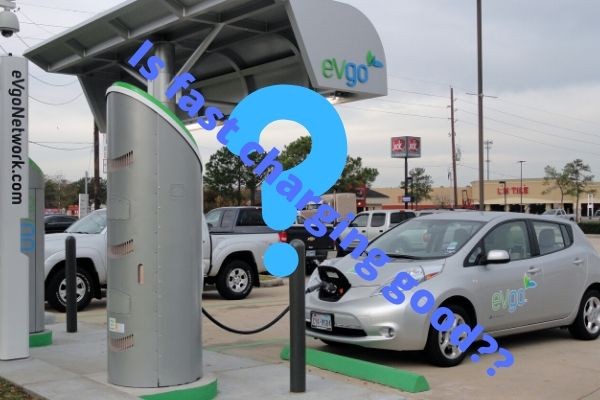
Here are the reasons why fast charging any electric car battery should be advised, or the battery will suffer in the long run.
Owning an electric car is one of the best automotive choices for any driver, who has become an early adopter of this clean technology. So, for most owners of an electric car and its electric car battery are happy with the big move. Especially, those got a Tesla are very pleased with the overall performance. Everything is all good, until the issue of fast charging crops up. For many, this is what matters most and getting topped up is important or end up with a low charge. Incidentally, most electric cars need to keep 20% left overcharge to work well. When it goes below 20% accidentally, it will take more time to charge.
The answer to it is to fast-charge it, so the charge gets over the 20% fast. A catch-22 is at work here, that is fast charging has ill effects on an electric car battery. One concern for any EV owner is what are the factors which lead to the battery losing out in the long run?
Before anything else, batteries are made to last longer, and service the EV with varying amounts of successive charging did not matter. Whether charging is heavy or light charging, it does not matter because that is how it used. Heat and DC current affect slow charging, or faster charging makes a difference that is not to be taken for granted.
One thing to note if the user lives in a warmer place, there is a good chance battery capacity will suffer due to higher temperatures. For EV users who cannot wait, doing fast charging hotter climes will degrade it faster. Say, after six years of continual fast charging will whittle 10% off. This means less cruising range and more fast-charging until it says sayonara, or the power pack needs replacement.
Read: Electric Vehicle Chargers Will be Getting Faster with Updated Charging Technologies
Nothing is the same for all battery packs and depends on how the battery is charged for several years. If there is a gradual decline in battery performance, expect a severe drop in output to come soon. It is hard to track and EVs are relatively new, and there is not actual EV that reached this point. Tesla owners are privy to say that range is not conclusive with the cars.
Software installed and uploaded will prevent overcharging, that is not good for a health EV battery or charging duration. From most instances, the real culprit is hot temperatures that cause a weakening EV battery, paired with a fast charge that causes a battery to overheat.
Naysayers say that EV car batteries will not last long, they are wrong to the core. For now, EV power packs do last longer than initial expectations. Usually, EB batteries will be less than 23 miles for every 2.3% each year. This is the constant for EVs with a 200-miles cruising range, that will be for five years from purchase. If you own an EV, the power pack will go beyond the car' service life. It also goes when fleet services are the ones who use EVs as service vehicles.
For example, not all EVs have the same type of cooling, and they are different according to the brand. Experience of EV users varies, depending on the cooling method used. Chances are that Tesla will prove to be the better option, over others as it is the best. When doing a fast charge, checking if it is advisable, or regrets will come in the end.
Related Article: Fast charging is not a friend of electric car batteries
See Now: OnePlus 6: How Different Will It Be From OnePlus 5?



























